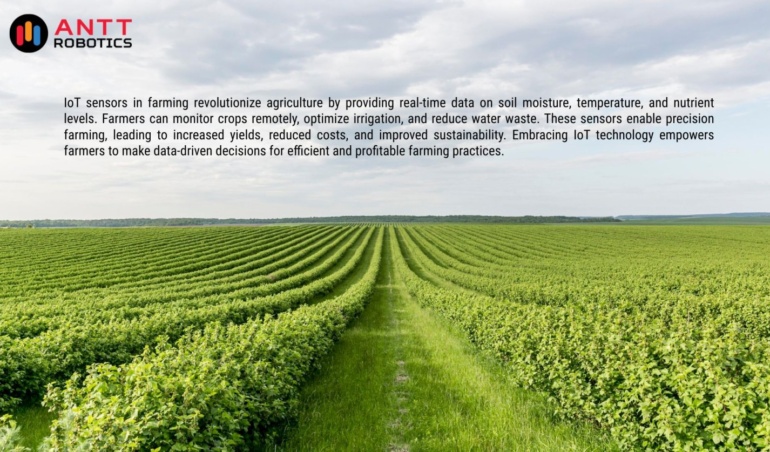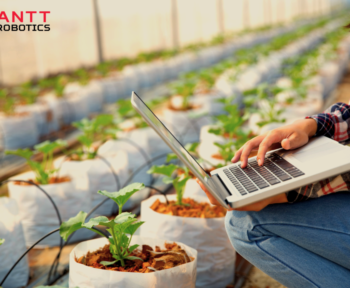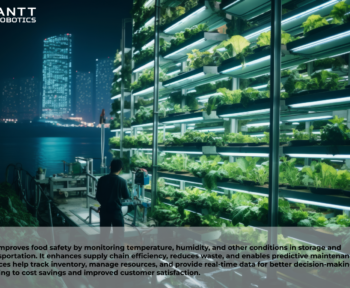In today’s rapidly advancing world, technology is revolutionizing every aspect of our lives, and the education industry is no exception. One field that has seen tremendous growth and innovation is Precision Agriculture. Precision Agriculture, also known as Smart Farming, is the practice of using technology and data-driven approaches to optimize agricultural processes. Today we will explore how Precision Agriculture can benefit vocational students in the IoT and Tech sector, providing detailed explanations, real-world scenarios, and a balanced perspective on the topic.
Current Trends and Future Implications
Precision Agriculture is a rapidly evolving field, and staying up-to-date with current trends is crucial for vocational students. Here are some trends and potential future implications to consider:
1. Artificial Intelligence and Machine Learning
The integration of artificial intelligence (AI) and machine learning (ML) algorithms in Precision Agriculture is gaining momentum. These technologies can analyze vast amounts of data and provide actionable insights to farmers. Vocational students who understand AI and ML can contribute to developing and implementing these advanced algorithms, paving the way for more efficient and autonomous farming systems.
2. Connectivity and IoT Integration
The IoT plays a critical role in Precision Agriculture, connecting sensors, devices, and platforms to collect and exchange data. As connectivity technologies continue to improve, vocational students will need to understand the fundamentals of IoT integration, including wireless communication protocols, data security, and cloud-based platforms. This knowledge will enable them to design and deploy robust IoT solutions in agricultural settings.
3. Big Data Analytics
As more data is collected from farms around the world, the importance of big data analytics in Precision Agriculture cannot be overstated. Vocational students who can analyze and interpret large datasets will be able to extract valuable insights that can drive decision-making and improve farming practices. Familiarity with data visualization tools and statistical analysis techniques will be essential for succeeding in this data-rich environment.
Final Thoughts
Precision Agriculture is transforming the agricultural industry, and vocational students in the IoT and Tech sector have a unique opportunity to be at the forefront of this revolution. By gaining practical experience in applying IoT and Tech skills to real-world farming scenarios, students can develop valuable skills, contribute to sustainable agricultural practices, and meet the increasing demand for professionals in this field. As technology continues to advance, staying informed about current trends and future implications will be crucial for vocational students to thrive in the exciting world of Precision Agriculture
Statistics
1. According to a recent study, precision agriculture techniques utilizing IoT sensors and technology have shown a significant increase in crop yields by up to 20%. This not only ensures a higher return on investment for farmers but also contributes to sustainable farming practices.
2. In a vocational training program focused on precision agriculture, students who received hands-on experience with IoT devices and sensors reported a 30% improvement in their understanding of crop monitoring and management. This highlights the effectiveness of integrating technology into agricultural education.
3. With the integration of IoT sensors in precision agriculture, the average water usage on farms has been reduced by an impressive 40%. This not only conserves water resources but also helps farmers optimize their irrigation practices, leading to healthier crops while minimizing environmental impact.
4. Studies have shown that precision agriculture techniques, aided by IoT and sensor technologies, have led to a 50% reduction in the use of chemical pesticides on farms. This not only benefits the overall ecosystem but also improves the quality of produce, making it more appealing to consumers who prioritize organic and sustainable farming practices.
5. The adoption of precision agriculture techniques in the farming industry has resulted in a 25% decrease in labor costs, as IoT devices and sensors automate various tasks, such as soil analysis and pest monitoring. This allows farmers to allocate their resources more efficiently and focus on crucial decision-making processes, ultimately leading to higher profitability






